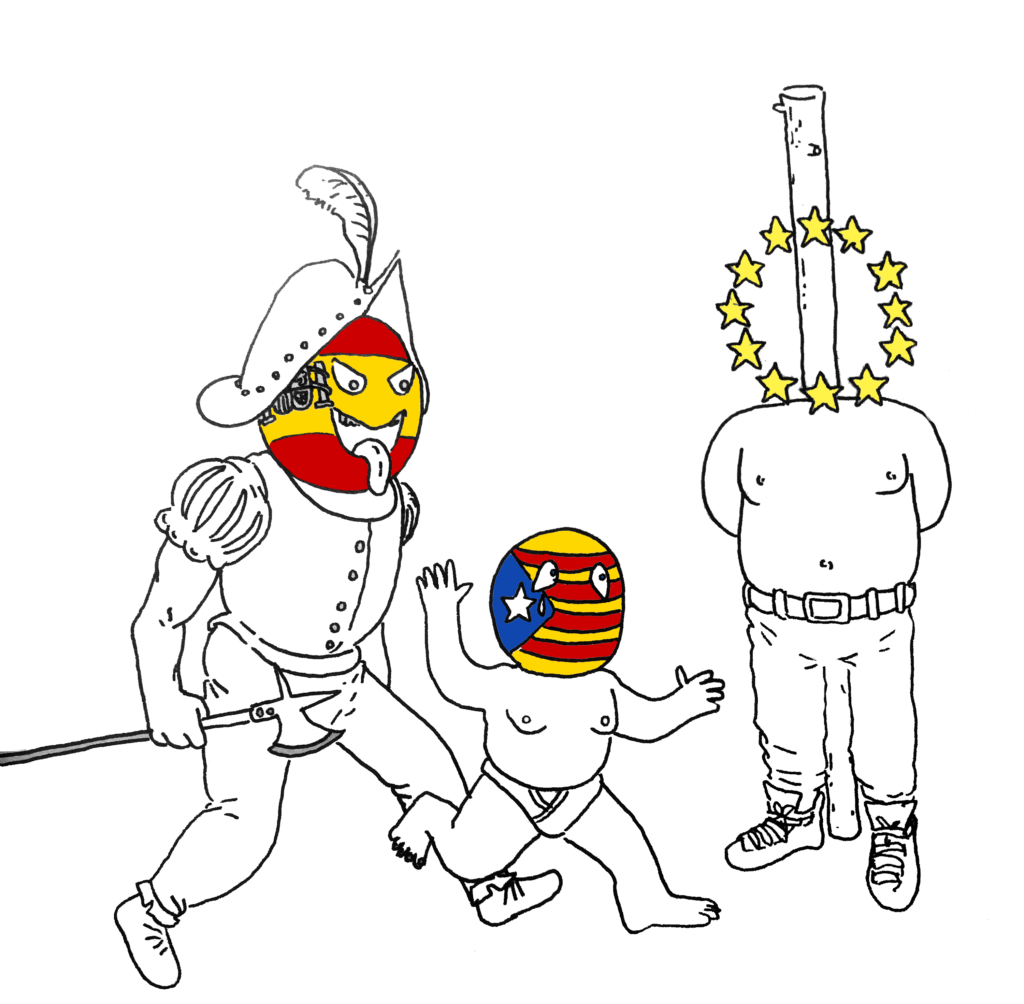In an interview in the Belgian newspaper De Morgen (paywall) on the 7th of May, Belgian liberal politician Vincent Stuer says that Europe is not able to deal with the way Spain treats the Catalonian separatists. According to him the European Union has no hard power to sanction Spain. We rate this claim as false.

Professor politics Hendrik Vos of the University of Ghent says that Europe could do something about it, but that there has to be a political will. Among the other member states there is no willingness.
“The problem with this case is that there has to be a majority of member states that agree on starting the procedure, and there wasn’t. It is pretty clear that Spain did something wrong and that the way they treated the Catalonian separatists was out of line. There are reports of Amnesty International or Human Rights that could indicate that Spain has violated the fundamental rights. Europe could then start a procedure to ask for an explanation and then secondly, Europe could punish Spain for its actions.”
Hungary and Poland
Professor of Political Science at the University of Antwerp Stefaan Walgrave agrees with Hendrik Vos although he does not dare to say with a 100% certainty whether Europe can effectively do something about the Spanish policy against the separatists. “The question is whether Europe politically can react to that policy. The EU needs the cooperation of all the 28 European member states. But it is not evident that they are willing to speak out openly about a conflict that is occurring within Spain.”
“But if the member states dare to cooperate, Europe has an institutional footing to stand up”, Walgrave continues. “There are enough rules that allow the EU to sanction Spain, as the Union has already done with Hungary and Poland. These countries did not fully comply with European legal rules. But it is not obvious that this could possibly happen in the Spanish case.”
Self interest
Why won’t the member states start a procedure against Spain? According to Hendrik Vos each country acts out of own interest. “It is a case of intern legal order and the countries in Europe don’t want to be involved if it is something internal.”
Bart Maddens, political scientist at KU Leuven, says that the reason for the EU not wanting Catalonia to be independent has to do with its fear that there will be a ‘domino effect’. That means that the EU is afraid that Catalonian independency would encourage the Scots, the Flemish, the Corsicans,… to also become independent.
The European Union considers that a threat: the fear for destabilization is why the EU does not act against the Spanish government. “One would at least expect that the European Union does its research in what happens exactly in Spain, like it did with Hungary and Polen. But Spain has too much power for the EU to engage with the Catalonian issue.”
In short, according to the experts we spoke to, the EU is too divided to act in the Spanish-Catalonian case. Another aspect is that the EU member states fear a domino effect of separatist movements standing up. On the other hand, there are no legal obstacles that prevent the EU to do something about the way Spain deals with the Catalonian separatists. Therefore we conclude the claim is false.
Leave your comments, thoughts and suggestions in the box below. Take note: your response is moderated.





